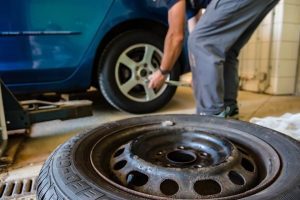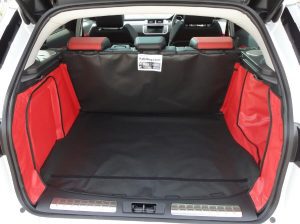Over the past few months fuel prices have skyrocketed in the US. The average price of petrol hit a groundbreaking $5 a gallon in June 2022, increasing in price by more than two-thirds over the last year.
Those worried about spending too much money on petrol can however undertake a few simple strategies to help make their fuel go further. At Dollar Hand, we have created a guide that explains 5 easy ways to cut the cost of driving.
Key points:
- Inflation has caused a significant spike in fuel costs.
- Dollar Hand presents easy hacks on how to save money on petrol costs.
- Researching fuel prices, sticking to a sensible speed, checking tyre pressure, emptying unnecessary items from the car and turning off equipment will all contribute towards lower fuel consumption.
5 Easy Ways to Cut Fuel Costs
1. Do Some Research
It is definitely worth doing some homework before filling up your tank and checking different petrol stations prices. For instance, petrol tends to often be cheaper at supermarkets. Apps such as ‘GasBuddy’ are particularly useful as they can help shed light on different prices and save you money at the pump.
You can also avoid premium gasoline since it has minimal benefit unless you own an imported or high-performance car that specifically requires a higher octane rating than regular fuel. This will certainly save regular drivers money on their petrol and is an easy swap to make.
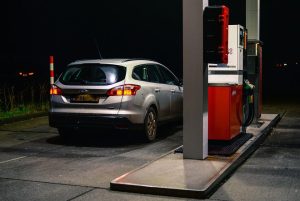
2. Stick To A Sensible Speed
Whilst this may seem obvious, driving at a regular speed can certainly save you dollars. The faster you go, the higher your fuel consumption will be. So you should definitely avoid unnecessary accelerating and drive smoothly.
The UK’s Department for Transport confirmed this as they showed that motoring at 80mph uses around 25% more fuel than driving at 70mph. Driving at 70mph instead of 60mph will use 9% more petrol, and an additional 5% than traveling at 50mph.
It is also generally advised to keep revs between 1,500 and 2,500rpm for a petrol engine and 1,200 and 2,000rpm for a diesel engine, and to avoid laboring the engine. Avoiding harsh braking unnecessarily will also contribute to better efficiency since braking wastes the energy used to get a car up to a certain speed. So if you’re approaching traffic lights, try to come to a gradual stop rather than an abrupt halt.
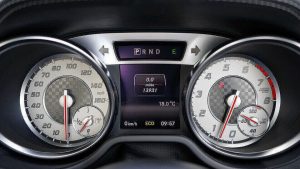
3. Check Your Tyres
It is vital to check that your tyres are at the correct pressure and have enough air in them. Tyres lose air naturally so it’s important to keep an eye on this regularly. If your tyres are underinflated then it means your engine will have to work harder and use up more petrol as there is more rolling resistance on the road.
4. Empty Your Boot
Something as simple as emptying out unnecessary items from your boot can help to reduce drag and in turn allow you to preserve petrol. Bicycle carriers, external boxes and roof racks can also add weight so detach them when you don’t need them.
Extra weight on a vehicle means that the engine has to work harder to get the car to the desired speed and therefore increases fuel consumption. So if you’re looking to cut back on your spending, definitely remove any items that you don’t need.
Having your windows open whilst driving at high speeds can also cause drag so it is best to avoid this when possible. Whilst air conditioning also consumes fuel, it might be a more economical option than opening windows when you are driving particularly fast.
5. Turn Off Equipment
Whilst using equipment such as the air conditioning and demister regularly is good to keep all parts of the car functioning, it takes up a lot of energy. Try only turning them on when you really need them to help save significant fuel amounts over time.
It may however be worth keeping on your sat nav if you are traveling to unfamiliar locations as getting lost would most likely cost you more in fuel. Sat navs will also show you the quickest route to your destination and in turn prevent you from wasting petrol.
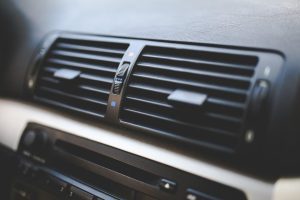
Conclusion
Adapting some of these simple tips and tricks will certainly make a difference over time to your fuel costs. There is also always the option to switch to an electric car as overall even with charging it you would still spend less than filling up a car with gas. Another option to consider is an economic petrol-hybrid vehicle.
Was this article helpful?
Justine is a full-time writer with lots of expertise and a wealth of experience in the financial world. In particular, she specializes in household income and consumer finance across the United States. Follow her articles for useful advice and top tips, guides on how to save money and lots more.

